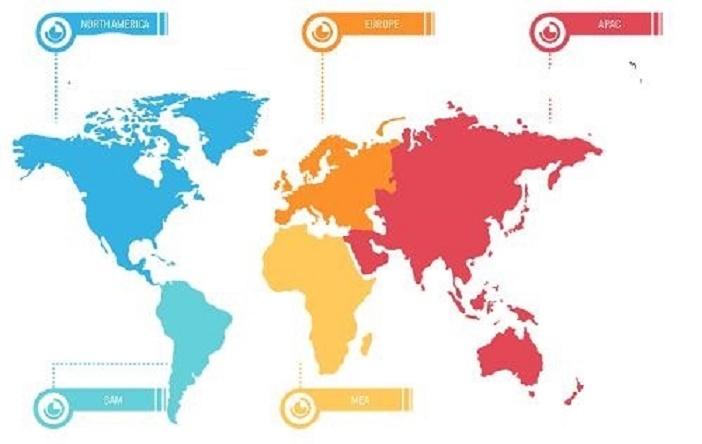In today’s dynamic marketing landscape, survey tools are becoming an integral part of measuring the success of marketing campaigns. Their contribution to strategic decision-making can’t be overstated. They provide data-driven insights that help marketers gauge the effectiveness of their strategies, making continuous improvement possible.
Marketing campaigns vary in their goals and execution, but their ultimate success hinges on reaching the intended audience and effectively communicating the desired message. The ability to track and measure this success accurately is vital. This is where survey tools come to the fore, offering hard data on various aspects of a marketing campaign, from consumer reception to feedback and engagement.
Adopting the use of survey tools allows businesses to create, implement, and analyze marketing strategies more effectively. With versatile applications across different marketing campaign types and platforms, survey tools promise an empirical approach to attaining marketing success.
Understanding Marketing Campaigns
Decoding the essence of marketing campaigns is crucial for their success. At their core, marketing campaigns are systematic, targeted promotional activities aimed at promoting a specific product, service, or goal. They are multifaceted and can encompass various communication mediums, from traditional print ads and billboards to digital platforms such as social media, email, and search engine marketing.
The success of marketing campaigns is not just about executing stunning creative ads; it’s about producing tangible results and achieving set goals. These goals could range from increasing brand awareness and engagement to driving sales or conversions. To evaluate whether these objectives have been met, businesses need quantifiable metrics, or Key Performance Indicators (KPIs), a sort of compass that guides and informs their marketing initiatives.
Survey tools come into play here, providing a systematic way to measure these KPIs. They offer invaluable insights into the thoughts, preferences, and behaviors of the target audience. This information, when properly analyzed and utilized, can turn a failing campaign into a triumphant one. By enabling businesses to fine-tune their strategies based on real-time feedback, survey tools strengthen the pathway to successful marketing campaigns.
The Role of Survey Tools in Marketing Campaign Measurements
Survey tools play a stellar role in marketing campaign measurements. They strip the guesswork out of campaigns and offer concrete, practical data that organizations can use to fine-tune their marketing strategies. By conducting surveys, businesses obtain firsthand information directly from their audience, which leaves less room for assumptions and more scope for informed decisions.
These tools help to measure various aspects of a campaign, such as message reception, brand awareness levels, customer satisfaction, and user engagement, among other things. This data then provides a clear indication of what’s working and what needs improvement. If a campaign isn’t meeting its set objectives, it’s through survey responses that marketers can pinpoint precisely where they need to revise their tactics.
In essence, survey tools are the bridge connecting businesses with their audience. They offer opportunities to gain insights into customer thoughts and preferences, which is crucial for tailored marketing. Witnessing their vital role in measuring marketing campaign success, it’s no surprise that more and more businesses are incorporating these tools into their marketing arsenal.
How to Use Survey Tools to Measure Campaign Success
Maximizing the use of survey tools for measuring campaign success requires a systematic approach. The first step is to clearly define the purpose of your survey. Is it to measure customer satisfaction, to gauge the effectiveness of a new advertising campaign, or to collect demographic information about your target market? Once you know what you want to achieve, you can move on to creating the survey.
Creating a successful survey involves designing concise, clear questions that are easy for the respondent to understand. Focus on asking questions directly related to your marketing campaign goals. Utilize various question formats like multiple-choice, rating scales, or open-ended questions to gather a wide range of feedback.
Analyzing survey results may seem daunting, but the right survey tool makes it much more manageable. These tools can highlight crucial data points, summarize responses, and even draw connections between different data sets. Keep in mind that while high positive responses indicate good performance, negative or lukewarm responses present opportunities for improvement.
When using survey tools, avoid leading questions that might influence the respondent. Also, ensure your sample sizes are large enough to provide statistically significant data. It’s critical to use these tools ethically, keeping the respondent’s privacy and comfort in mind.
Real-World Examples of Successful Usage of Survey Tools in Marketing Campaigns
Illustrative uses of survey tools in real-world marketing campaigns can provide valuable lessons. Here’s where case studies come into view. By examining various brands’ approach to utilizing survey tools and looking at their attained results, marketers can learn best practices and avoid potential pitfalls.
Consider, for instance, a hypothetical case of a renowned e-commerce brand. They embarked on a new social media marketing campaign but noticed middling engagement levels. By employing survey tools, they gathered feedback directly from their target audience, identifying that the campaign’s messaging wasn’t hitting the mark. Strategically using this feedback, they pivoted their approach and witnessed a considerable uptick in engagement.
Another case could be a startup business launching its first product. They used survey tools to gauge the product’s reception and gathering user experience data post-launch. These insights assisted them in making key product refinements, resulting in increased customer satisfaction and positive word-of-mouth promotion.
These examples underscore the transformative impact of survey tools on a marketing campaign’s outcome. Real-world cases offer actionable insights, ensuring marketers can employ similar strategies in their campaigns to drive success.
Future Trends of Survey Tools in Marketing Measurement
As we look toward the future, one thing is certain: survey tools are here to stay in the realm of marketing campaign management. They continue to evolve, with newer features and functions being developed to better assist marketers.
For instance, we’re seeing a wave of AI-powered survey tools that can interpret open-ended responses with greater accuracy, removing the limitations of traditional survey methods. This advancement can provide deeper insights into customer sentiments and motivations without extensive manual intervention.
Another emerging trend is the integration of survey tools with other marketing platforms. This holistic approach gives a more comprehensive view of campaigns, helping marketers choreograph customer journeys with greater precision and effectiveness.
Additionally, with growing emphasis on data privacy laws and consent-based marketing, the use of survey tools will become even more critical. As these trends reshape the landscape, marketers will need to stay updated about new tools and techniques. This will ensure they create successful, customer-centric campaigns that align with emerging requirements and expectations.
Key Takeaway
To summarize, survey tools are game-changers in the world of marketing. Their ability to provide concrete, data-driven insights makes them indispensable assets in any marketer’s toolkit. When implemented correctly, survey tools help evaluate and elevate the success of marketing campaigns.
They offer the rare chance to listen to the voice of the customer, collectively and individually. By leveraging this feedback, marketers can design and implement strategies that align more closely with their target audience’s expectations. Moreover, survey tools keep the guesswork at bay, empowering organizations with hard facts to inform their decision-making process.
Ultimately, the utility of survey tools extends beyond measuring success. They provide opportunities for continuous improvement, growth, and increased customer satisfaction, which are the hallmarks of truly successful marketing campaigns.




